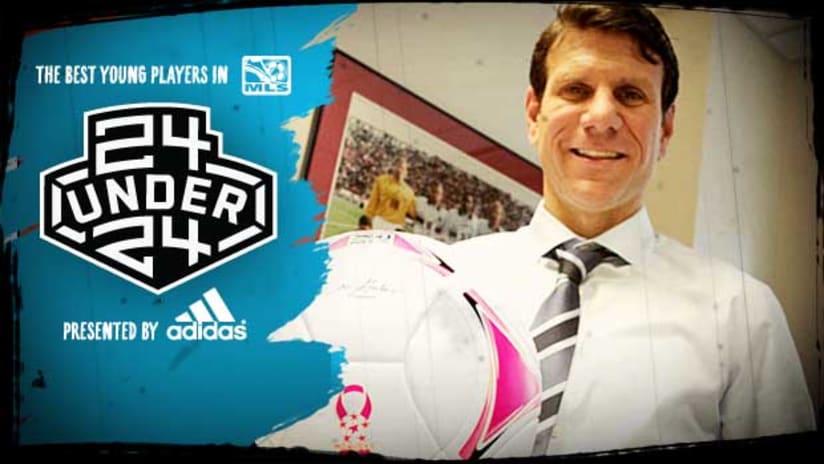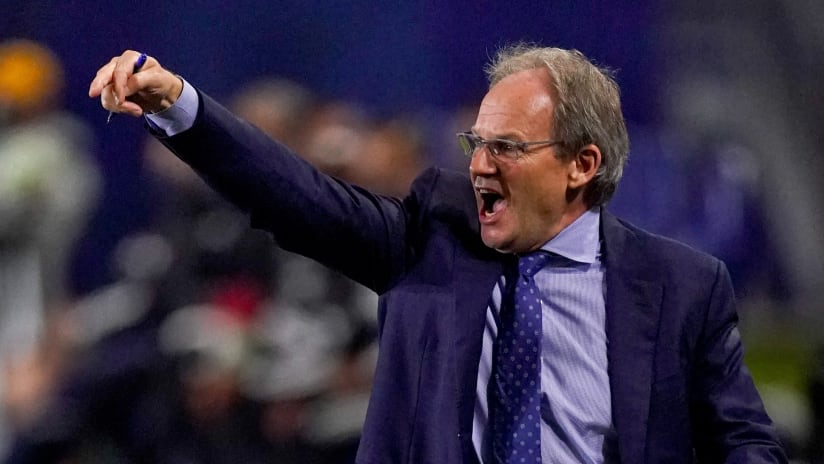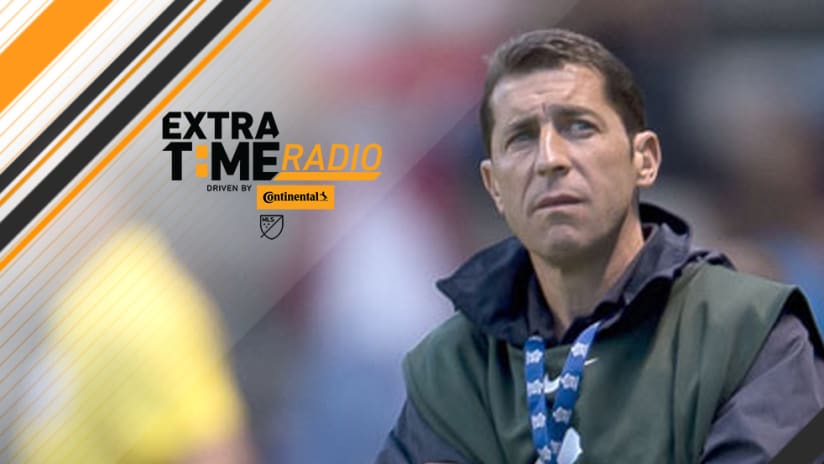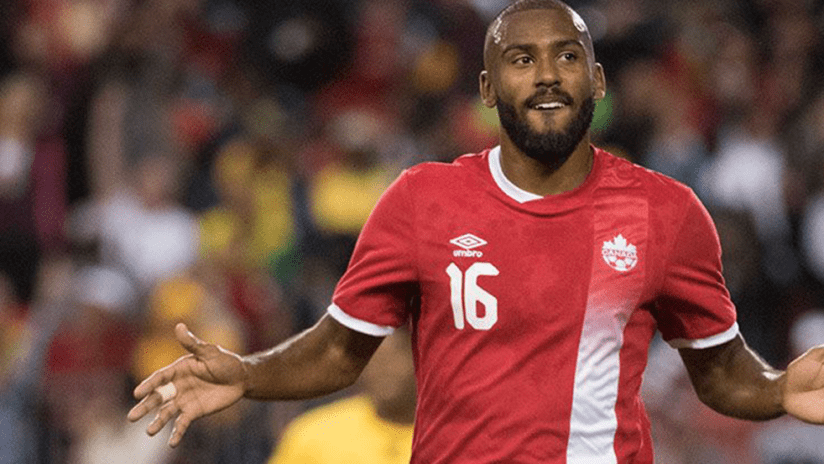As part of his weekly series on MLSsoccer.com, senior writer Jeff Bradley spends 10 minutes with some of the biggest names in North American soccer to talk about how they’ve made their mark on the game through the years.
This week, Bradley sits down with five-time MLS Cup champion and former US national team defender Jeff Agoos, who now works as the MLS technical director, to talk about player development, the academy system and what can be done to keep the ball rolling.
BRADLEY: A huge part of your job now as the league’s technical director is youth development. How has that evolved since your playing days in MLS? Are there more opportunities now for players, say, younger than the age of 24 than in the past?
AGOOS: I certainly think there are more opportunities, and most of that comes from a more organized academy program, which we didn’t really have in the early days, with the exception of maybe one or two teams.
BRADLEY: What forced more teams to step up and start academies?
AGOOS: One of the important rules put in place was the Homegrown Rule, which was implemented in 2007. Prior to 2007, a team could potentially develop a player then watch him sign with another team. So a lot of teams asked, “Why should we be interested in developing players if we can’t keep them?”
When we allowed teams to develop and sign their own players, I think there was a sea change. There was a better understanding of how important it was to develop your own players. We also began to see that it made good economic sense.
- 24 UNDER 24: Check out the list so far
BRADLEY: How so economically?
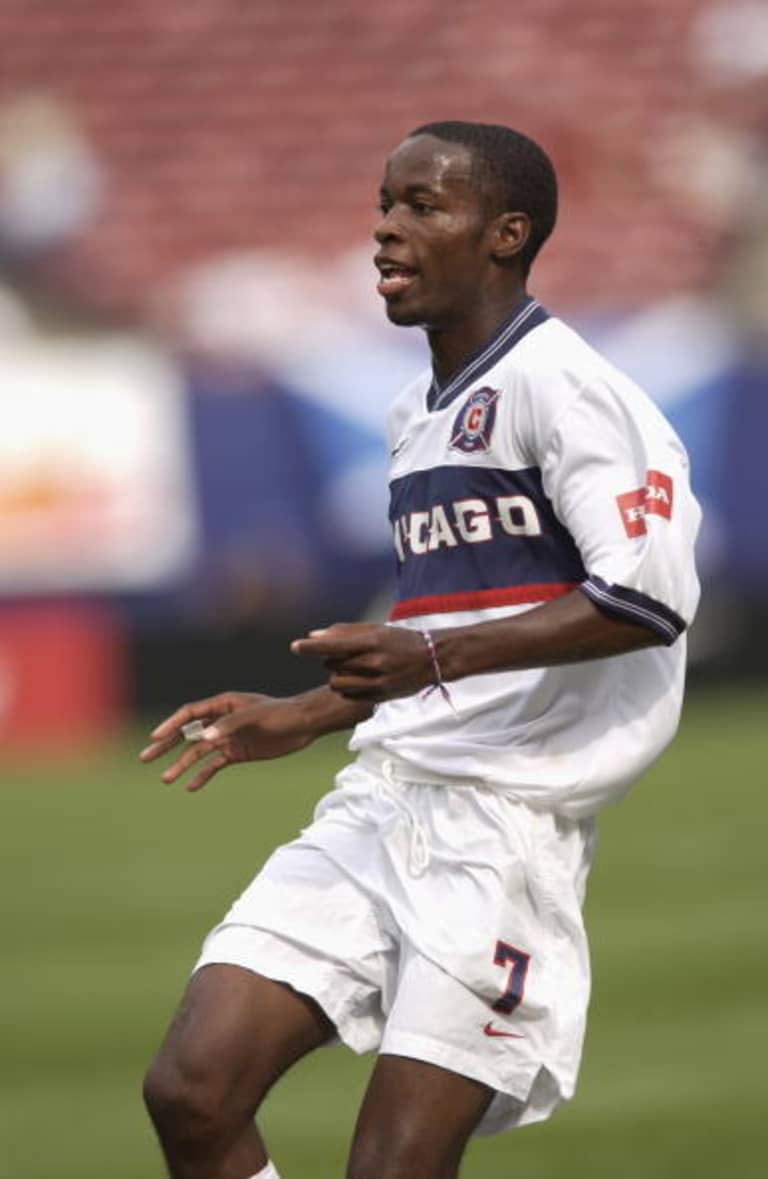
Chicago Fire midfielder DaMarcus Beasley (here in 2002) was a star in MLS by the time he was 19 years old. MLS technical director Jeff Agoos says players like Beasley might not be getting the same first-team opportunities they did back then.
(Getty Images)
AGOOS: With the system that we are in with the free market around the world, I think developing players is critical to the success of our league. Clubs are seeing that it costs less to develop their own players than to go out on the market and sign them.
BRADLEY: Getting back to your playing days, we did see guys like Landon Donovan, DaMarcus Beasley, Eddie Gaven, Bobby Convey, make significant contributions as youngsters. What was it that allowed them to jump right in?
AGOOS: I think they were exceptional players. I don’t see those types of players the way we saw them in the past. Whether those players still exist, I’m not sure. I’m not sure if players are getting the same opportunities. I just think the structure is very different now. There’s a huge gap between our first team and our academies that needs to be addressed. And until that is addressed, it’s going to be tough for players to move up, especially with a 20-man roster.
BRADLEY: But we see a good number of players, some under the age of 20, getting chances with huge clubs in Europe. Why is that?
AGOOS: The cultural aspect of those foreign leagues and teams is very different from what we have in our country. The culture, for example, is very different in Germany, where a kid has been a part of Bayern Munich’s system since he was 13 or 14 versus a kid here who’s playing in the Red Bull or Columbus Crew Academy. The attention to the sport is very different. But with that being said, we still produce a good number of young players.
BRADLEY: How can MLS develop more good young players? What are some of the changes you are trying to implement?
AGOOS: We need to address the issue of how players are developing, what’s the environment like, what kind of coaching they’re getting. What kind of opportunity will they be getting once they graduate the academy program? And if they are an exceptional player, what kind of opportunities will they get to advance? Being thrown into the first team is the exception.
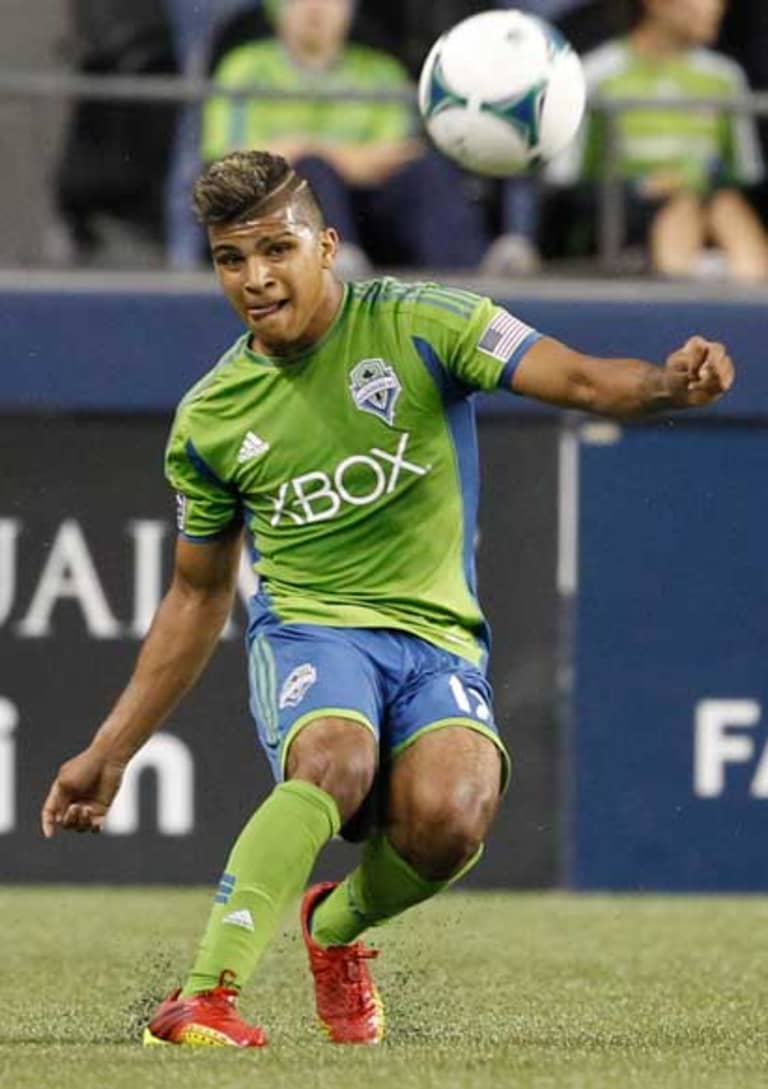
Agoos says Seattle Sounders defender DeAndre Yedlin is one of his favorite young players in the league today. "He’s got size and pace," Agoos says, "and he wants to be a right back."
(USA TODAY Sports)
BRADLEY: Who’s the best young player in MLS history?
AGOOS: I think Landon is the No. 1 example. He was head and shoulders above everybody else. He came with a reputation, and we know there are a lot of players who come with a reputation that don’t turn out like Landon. A lot of guys don’t live up to it, but Landon was different.
I think the difficult time he had in Germany helped him. I think it gave him experience and I think he came here very motivated to do well. When he came to us in San Jose, we knew he was going to help us immediately.
BRADLEY: Are we close to getting this system right?
AGOOS: No, I think we need to do a lot more work. It’s a good first step, but we need to remember that our program is only six years old. When you look at the youth development programs in Europe, they’re decades old. We’re in an embryonic stage, but I think we also need to radically change the environment.
We have to improve our coaching development. We have to give our coaches different opportunities. I’d like to see our coaching education programs evolve and become one of the top programs in the world. We’ve got plenty of players but we need more top-level coaches who know how to develop them. The question we ask around here is, "Have we produced a world-class player?"
BRADLEY: Who’s close? Who’s a young player in MLS today that you really like?
AGOOS: I like DeAndre Yedlin. I really like what he’s about and maybe it’s because he’s not a converted midfielder trying to become a right back. He’s a right back and I think as he matures he’s going to be a very good player. He’s got size and pace and he wants to be a right back. We don’t have specialized players like that. I’m hoping to see him continue to develop and become a top player.
BRADLEY: But there aren’t many Yedlins, are there? Is it simply because coaches are hesitant to put a kid on the field when the games mean so much?
AGOOS: I think that’s why there are limited opportunities. The pressure to win on Saturdays is so immense, so intense, that it’s very difficult for a coach to give a young player an opportunity. It could cost him three points. It could cost him his job. But my hope is that as we produce more players like Yedlin that they are given those opportunities.

